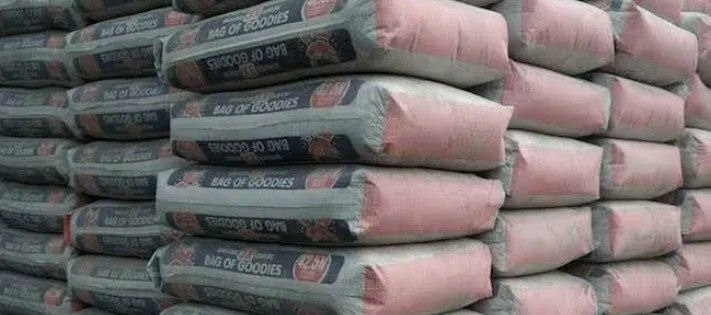The Federal Government has described the rising cost of cement in Nigeria as unacceptable and threatened to open the borders in order to force down the price of the product.
The Minister of Housing and Urban Development, Ahmed Dangiwa, who issued the warning on Tuesday, said key components of cement manufacturing were locally sourced and the recent increase in the price of the product was unreasonable and unacceptable.
Dangiwa made this known in Abuja at an emergency meeting held with cement and building materials manufacturers.
He threatened that the government might open the borders for cement importation if manufacturers of the product fail to heed the pleas for a price reduction.
According to him, major input materials for cement production, such as limestone, clay, silica sand, and gypsum, are available and sourced within Nigeria, and hence, the final price of cement should not be dependent on the dollar.
He said the price of gas that manufacturers are using as an excuse should not be because gas is a raw material found within the country, and the excuse of an increase in mining equipment should not come up because equipment bought by these manufacturers has been used for decades and not just purchased every day.
The Minister who called on the manufacturers to be more patriotic said BUA cement for instance, has been willing and is still willing, as at the last time he spoke with them to crash the price of their cement, lower than the N7000, N8000 agreed by the manufacturers and he sees no reason why the others should not do same.
In his words,
“The challenges you speak of, many countries are facing the same challenges and some even worse than that but as patriotic citizens, we have to rally around whenever there is a crisis to change the situation.
“The gas price you spoke of, we know that we produce gas in the country the only thing you can say is that maybe it is not enough. Even if you say about 50 percent of your production cost is spent on gas prices, we still produce gas in Nigeria it’s just that some of the manufacturers take advantage of the situation. As for the mining equipment that you mentioned, you buy equipment, and it takes years, and you are still using it.
“The time you bought it maybe it was at a lower price but because now the dollar is high you are using it as an excuse. Honestly, we have to sit down and look at this critically. The demand and supply should be good for you because the government stopped the importation of cement, they stopped the importation in order to empower you to produce more.
“Otherwise if the government opens the border for mass importation of cement, the price would crash but you would have no business to do and at the same time the employment generation would go down. So these are the kinds of things you have to look at, the efforts of government in ensuring things go well.”
Earlier in his speech, the Group Chief Commercial Officer of Dangote Cement, Rabiu Umar, blamed the high cost of gas and mining equipment for the hike in cement price.
He said:
“It is safe to say we are all Nigerians and we are all facing the current head weight that is happening. I would like to speak on the popular belief that most of the raw materials to produce cement are available locally. While we have limestone and in some cases, we have gypsum and some cases coal, the reality is that it takes a lot of forex-related items to produce cement.
“Most of the cement plants in Nigeria use gas to produce, the gas is indexed to a dollar and it is almost half of the total cost of production. So if 50 percent of your cost of production is indexed to the dollar it means if the dollar changes then your total expenditure would change in that direction.
“Regarding what is happening at the border towns because of the devaluation of the naira it has made it a lot more attractive for people to come from neighbouring countries, with foreign exchange, buy cement and export it illegally across.
FG Threatens To Open Borders If Cement Manufacturers Do Not Adjust Price




